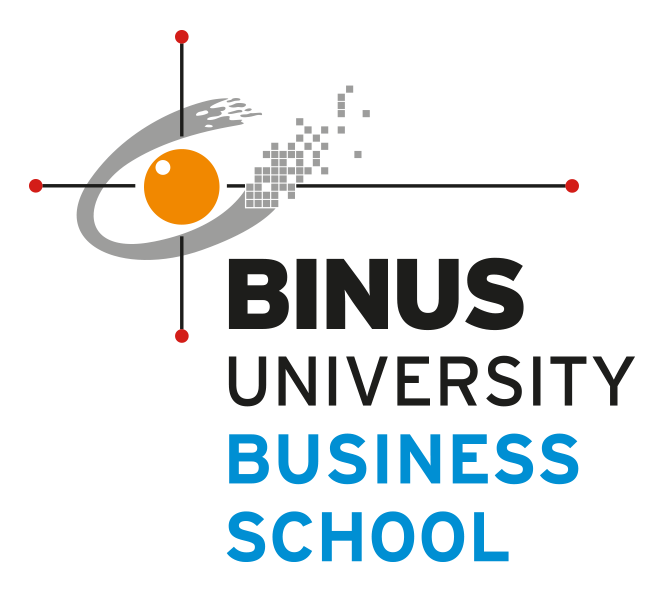Case Document
TAHAPAN BCA: INNOVATION CHAMPION THROUGH KLIKBCA
In 1998 Lippo Bank introduced internet banking; that same year Bank Internasional Indonesia launched internet for its customers. Bank Central Asia (BCA) soft launched KlikBCA (Internet Banking BCA) in August 17, 2000 and officially launched it in March 2001.
When introducing internet banking for Consumer Banking in Indonesia, Stephen Liestyo, BCA Senior General Manager knew that he had to choose the right strategy as other local banks that allocated extensive programs to educate customers about using internet banking did not attain substantial immediate results. Several options and solutions were discussed extensively among the steering committee team before launching KlikBCA. One of the options chosen was to use the same ATM screen in the KlikBCA. Replicating the ATM screen and features into KlikBCA was a critical first step. The team also decided to add more features, such as a message feature in KlikBCA in the next step of KlikBCA’s development. Individual customers increased from 29,000 customers during the first launch to 217,653 customers at the end of 2001. Stephen Liestyo asked his team to formulate the strategy that could prepare KlikBCA to go world wide in order to strengthen BCA position as the best transaction bank.
On one bright afternoon on May 31, 2007 at 3:00 pm, a member of Case Writing Team received an SMS sent by Stephen Liestyo, Senior General Manager of Consumer Banking BCA. The content of the SMS was “Sorry, from June 6 – 13, 2007, I will be in Shanghai to receive an award from The Asian Banker”. BCA was named as “The Best Retail Bank in Indonesia in 2006 at Asian Banker Excellence in Retail Financial Awards. Asian Banker assessed over 140 financial institutions in 22 countries throughout Asia Pacific. This SMS reply confirmed the need for further discussion on internet banking.
On one side, Case Writer Team at Binus Case Center should wait for his presence and reschedule the meeting after Liestyo’s return from Shanghai. On the other side, this news encouraged team to develop further Klik BCA case. Stephen Liestyo confirmed that Asian Banker Award named BCA as “The Best Retail Bank” for four consecutive years started in 2003.
According to Eric Berliner in Asian Banker assessment, one of BCA’s strengths was its well developed automatic transaction network. ”BCA utilized a solid infrastructure to support bank operation in order to maintain its position as the transaction bank of choice in Indonesia”.. This solid infrastructure helped BCA generate more profits in 2006 than its competitors. With the best infrastructure, BCA became the most efficient, reliable, innovative and profitable bank in Indonesia.
GRIN: INDONESIAN EXPANSION
It is January 19, 2007, Ulf and Bo Andersson is pacing agitatedly about his hotel suite, located in the business district of South Jakarta. He is both excited and a little bit apprehensive about the decision he has soon to make. Bo is currently on a trip to Jakarta in search of a location for a sister office to expand GRIN, the company founded by Bo and his brother, Ulf Andersson. GRIN is a game development company based in Stockholm, Sweden which focuses on making games for the PC (Personal Computer) platform. The company’s latest hit,‘ Tom Clancy’s Ghost Recon: Advanced Warfighter’ (GRAW), published by Ubisoft Entertainment, has won reviews and awards worldwide. Bo, in his quest for a suitable office/studio location outside Sweden, is hoping that the new sister office will strategically support the main office in Stockholm in producing the next generation of games.
Looking out from his hotel suite, immersed in thought, Bo gazes at the huge sports complex across the street. The decision to expand won support from his brother and some people at GRIN, but choosing the location will be critical since it will mean a sizeable investment for the company. Prior to the trip to Indonesia, Bo considered the Baltic States in Eastern Europe, China, and India as potentially favorable locations. A merger with another game development company in the United States or Sweden is also an option for the expansion. Whatever the decision, the expansion is needed to acquire the necessary creative talent in building the next generation of AAA games (triple A: multiple platform games; games developed for multiple platforms, e.g.: PC, Sony PlayStation, Microsoft Xbox).
Within the past few days, in search of market opportunities and talent, Bo has met with game developers, universities, and even found potential office space in the central business district of Jakarta, all with the help of a Swedish acquaintance with years of experience doing business in Indonesia. The office space is located in a tower adjoining a shopping mall.
Bo turns his head and looks at the DVD disk sitting innocently on the coffee table. The disk was sold to him the day before in a software store at the shopping mall in a flimsy plastic sheet with a poorly printed paper-insert depicting the contents of the package. Bo bought the disk for 50 thousand Indonesian Rupiahs, or approximately 5 US Dollars. The paper-insert was printed from a scanned packaging of GRIN’s latest hit, Ghost Recon, and Bo purchased this pirated copy of the game his company developed at a fraction of the cost the publisher of the game sells it for elsewhere (Exhibit 1 shows packaging of pirated software). The store not only carries PC games, but also productivity applications, operating systems, software development tools, and other office/business software; basically any category of software a person would ever need. In that particular shopping mall, there are at least 3 other stores selling pirated software, and other small stands/kiosks selling pirated DVD movies and CDs (Exhibit 2 shows the typical software store). Jakarta seems to be a good location for finding talent; but Bo wonders whether the city is the right location to expand his company and develop the capacity to compete in the future.
PT. HOLLITECH: USING INTELLECTUAL CAPITAL TO WIN CUSTOMERS (PART A)
Stefanus Mulianto, Director of PT. Hollitech, was proud of the achievement of PT. Hollitech since the day it was founded. He had reasons for that since his company was the only company that successfully developed applications software for the garment/apparel industry in Indonesia. The latest achievement was shown in late 2005 when the company acquired an Indian IT company. Over the past four years Stefanus Mulianto had been responsible for managing the operations of company as well as its human resources. Once an IT department of a textile/garment conglomerate, PT. Hollitech had grown into a medium-sized international IT services company delivering various solutions to financial institutions, garment, and hospitality industries. Innovation, quality and on-time delivery of IT solutions had always been part of the strategy that Stefanus Mulianto believed was the key driver to PT. Hollitech’s success.
THE DIGITAL BEAT (DB): THE INDONESIAN FIRST DIGITAL MUSIC SHOP
Budi Raharjo has been interested in participating in the digital music business since he saw the big music market still ignored by the Major Labels recoding companies. In his blog, Budi often receives complaints from the amateur musicians who want to take action in the recording world or distribute their music recording product, but they still meet with a lot of obstacles.
According to Budi Raharjo, a Canadian doctor graduate, to run a musical digital shop is to meet the continuous need for music which becomes more personal day by day. The consumers need more choices of songs. Unfortunately Budi thinks, there are still many people who like to buy pirated CD and MP3 or illegally downloading songs in the internet. He thinks then why don’t we provide software that makes downloading legal.
COPYRIGHTED DIGITAL MUSIC DISTRIBUTION TOWARDS A HEALTHY INDUSTRY
Music Industry Architecture changed dramatically with the introduction of the MP3 format, which was started in April 1989 by Fraunhofer Institute when it patented the new audio format. Compressed audio could now be easily transferred from PSTN (Public Switch Telephone Network) through a dial-up connection.
CD Audio format and analog cassette were substituted by the MP3 audio format, which is approximately one-tenth of the size of a CD Audio file. The MP3 format can be stored in any available portable storage such as USB flash, burned to a blank CD, or even transferred to any MP3 player like iPod and smart phone.
However, one drawback is the MP3 audio format is so flexible then anyone can easily copy or duplicate the digital song, leading to copyright infringement. File sharing technology, namely peer-to-peer (client to client) such as NAPSTER is a nightmare to any recording label.
The two approaches for digital music distribution are copy protection in which DRM (digital right management) technology is used, and the copyright protection where accountability is used for each customer with the support of watermarking technology.
The issue of copyrighting in Indonesia’s music industry has been a long and forgone story. Based on 2004 data from The Age website, Indonesia ranked 4th in the illegal music industry market, worth as much as US$ 89 million (as much as 80% of the total music industry)
PORTALHR: ANSWERING THE CHALLENGE OF INDO-NESIA ONLINE PORTAL BUSINESS
PortalHR is an online portal whose targeted Indonesian human resources community, a targeted and segmented market. Although PortalHR is only been around for more than a year, its current situation is promising. While many online portal businesses in Indonesia suffered from financial and operational difficulty, PortalHR had its own strategy to overcome such difficulties. In the future, PortalHR will have to face greater challenge, either from another competitor who could surface anytime or even from its own strategy, which will be tested if its strategy was capable enough to answer the future.






